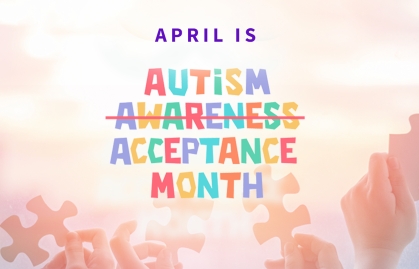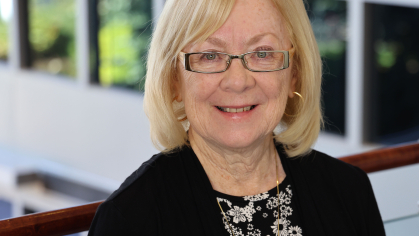
Autism Awareness Day was established in April of 1972, and the celebration quickly became Autism Awareness Month. Since that time, autism, like other developmental disabilities, has touched many families in our country. So much so, that some have called for a shift from “awareness” to “acceptance.”
The Autistic Self-Advocacy Network has called April “Autism Acceptance Month” for more than ten years, and in April 2020 the Autism Society of America began using the term “acceptance” rather than “awareness,” too.
This distinction shows why language matters. When it comes to disabilities, acceptance is more difficult than awareness, and it requires work on everyone’s part. Autism acceptance allows people to be fully a part of their community as they live, work and play.
Three years ago, Christopher Banks, President and CEO of the Autism Society, said: “While we will always work to spread awareness, words matter as we strive for autistic individuals to live fully in all areas of life. As many individuals and families affected by autism know, acceptance is often one of the biggest barriers to finding and developing a strong support system.”
Our society is challenged to shift it's thinking on what autism means. It is a lifelong disability, and while many people are aware of it, many do not recognize that it is not just the person with autism that needs support, it is the whole family. Different supports are needed as a person enters adulthood and acceptance of that shift in supports must be recognized for full participation and citizenry.
The Community Living Education Project champions the need for acceptance of all people with intellectual and developmental disabilities. Our team members have experienced first-hand the need for acceptance of their own family members and are skilled at providing support and resources to individuals and families as they navigate full lives within their communities. Please let us know if we can help you!


